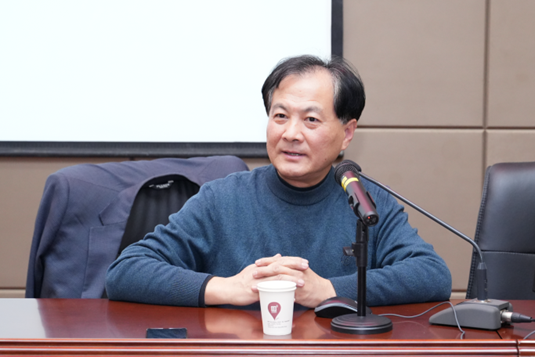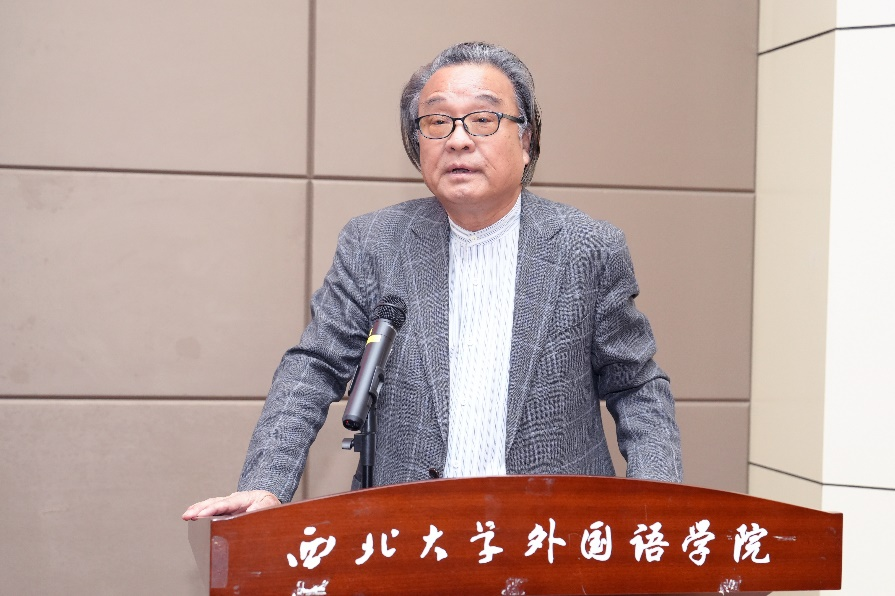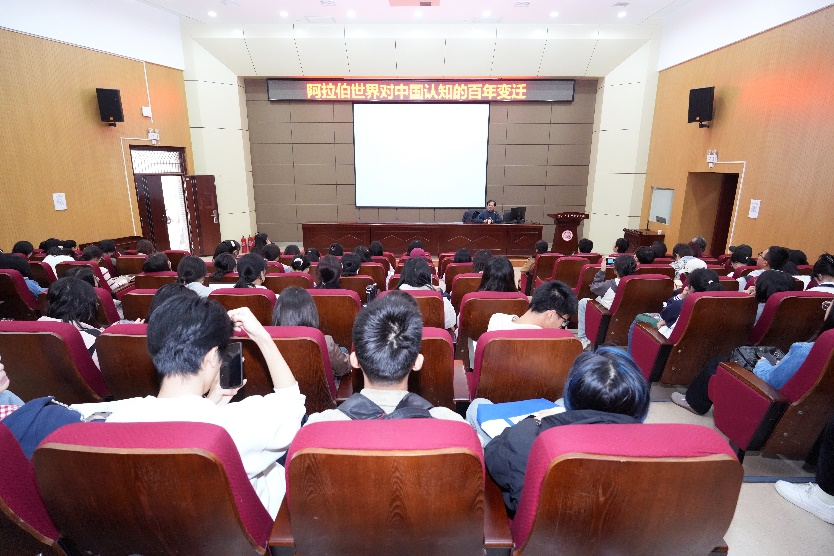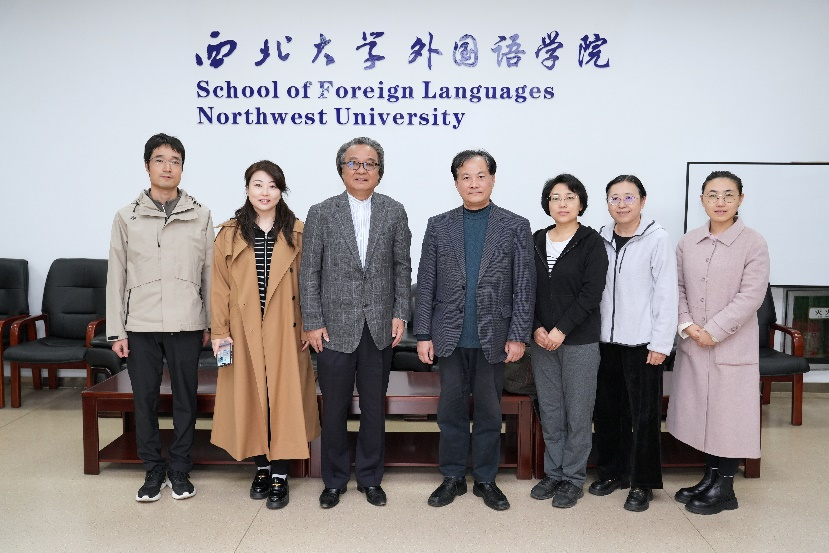On the afternoon of October 24, 2024, Professor Xue Qingguo from the Arabic Institute of Beijing Foreign Studies University was invited to deliver an academic lecture titled “A Century of Change in the Arab World’s Perception of China” at our school’s Second Classroom Lecture Hall in the Chang'an campus. The lecture was hosted by Professor Wang Xin’gang, Director of the Syria Research Center, and attended by nearly a hundred faculty members and graduate students from the School of Foreign Languages.


Professor Xue Qingguo began by outlining five characteristics of the depiction of China in ancient Arabic texts, noted that these records generally presented a positive and consistent image of China, which significantly influenced how both contemporary and later Arabs perceived the country. He then proceeded with his lecture in three parts: the perception of China by modern Arab cultural figures, contemporary Arabian cultural figures, and the image of China in the modern Arab world. Firstly, in discussing modern Arab cultural figures, Professor Xue highlighted the Lebanese thinker Shakib Arslan, citing a series of articles titled “The Future of China” published in the early 1900s in one of the most important academic journals in the Arabian world, "Al-Muqtabas." He summarized the key characteristics of the image of China presented in these articles, emphasizing that these articles conveyed a generally favorable view while also gave an objective view on China’s shortcomings, and set China as a mirror to inspire Arab nations and civilizations. Other cultural figures such as Al-Ratbi, Akkad, Gibran, and Numan also provided high praise for Chinese society and civilization in their works. For contemporary Arab cultural figures, Professor Xue firstly introduced the publication story of “People’s China,” which shaped a generation of Arabs' understanding of China. Syrian poet Nizar Qabbani, known as the “Prince of Love Poetry,” frequently utilized imagery of “China” in his works, creating vivid and evocative portrayals. Poets and writers such as Iraqi poet Bayati, Yemeni poet Makhalih, Syrian writer Salama Obaid, and Algerian thinker Malik Nabi also expressed sympathy for and celebrated the Chinese revolution in their works. By analyzing the writings of renowned figures like Hadi Aliya, Firas Sawah, Saadi, Jamal Khitoni, and Adonis, as well as novels addressing Chinese themes by prominent Syrian authors such as Hanae Mina, Amin Zawi, and Muhammad Abdul Wali, known as the “Father of Yemeni Novels”, Professor Xue summarized several characteristics of contemporary Arab perceptions of China, like presenting a consistent yet evolving image and showing an admiration for Chinese culture. Furthermore, regarding the contemporary image of China in the Arab world, Professor Xue presented Arab countries’ public survey data on “Big Countries Favorability” which indicate that China ranks second only to Germany. He analyzed the main reasons for this favorable perception, which include China’s long and brilliant civilization, its development model, and its remarkable achievements.

After the lecture, Professor Xue engaged in a dialogue with faculty and students, answering their questions. His clear and engaging presentation left a deep impression, providing significant insights to attendees. In closing, Professor Wang Xin’gang highly praised the lecture and expressed heartfelt gratitude toward the guest speaker once again.
